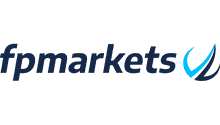We are one of the biggest broker review sites. Read unbiased reviews about regulated and unregulated brokers operating across the globe and see what they have to offer. We scan for fees (spreads), licenses, available trading platforms & assets, funding methods and much more!
This platform does not provide only unbiased reviews, but also your reviews. That means you can (and are highly encouraged to!) share your first-hand experience with a broker you have traded with. By doing so, you help others to see behind the curtain of what a broker really offers.
CFDs are complex instruments and come with a high risk of losing money rapidly due to leverage.
Between 74-89% of retail investor accounts lose money when trading CFDs
You should consider whether you can afford to take the high risk of losing your money ¹ Variable spreads, spreads recorded for the EUR/USD on 29.09.2024 at 11:42 GMT.
How to select a reliable trading partner?
If you are looking for a reliable FX/CFD broker there are a couple of aspects you should consider in order to avoid dealing with any shady broker. The foremost important aspect is regulation. Financial regulatory authorities that license and authorise brokers to provide services in a given jurisdiction constantly monitor day-to-day operations, provide investor compensation schemes and fine brokers in case of misconduct.
Dealing with an unregulated broker or with a broker that is regulated by a weak financial regulatory body like the FSA (Seychelles Financial Services Authority) or SVGFSA (Financial Services Authority St. Vincent and the Grenadines) is done at one’s own risk. Brokers that are regulated by such tax haven establishments do not have to follow strict establishment rules nor they have to make any regulatory reports. They also are also not charged with fines in case of their malicious service nor they provide any investor protection like Fund Segregation, Negative Balance Protection or Compensation scheme in case of insolvency.
Having mentioned how risky it is to trade with unregulated (or regulated by a weak financial regulator body), let’s cover now financial regulators with a superior reputation, transparency and investor protection.
Regulatory bodies in Europe
Here is a list of some of the most prestigious regulatory bodies in Europe. A broker that is regulated in at least one EU country has the right to legally provide cross-border services to traders from all EU countries.
![]() FCA (Financial Conduct Authority) – Is a first-tier financial regulatory body that oversees the financial market in the United Kingdom.
FCA (Financial Conduct Authority) – Is a first-tier financial regulatory body that oversees the financial market in the United Kingdom.
![]() CySEC (Cyprus Securities and Exchange Commission) – a Cyprus based financial regulator.
CySEC (Cyprus Securities and Exchange Commission) – a Cyprus based financial regulator.
Regulatory bodies in other jurisdictions
![]() ASIC (Australian Securities and Investments Commission) – Is a first-tier financial regulatory body that oversees the financial market in Australia.
ASIC (Australian Securities and Investments Commission) – Is a first-tier financial regulatory body that oversees the financial market in Australia.
![]() CFTC (Commodities and Futures Trading Commission) – a regulator that regulates the U.S. derivatives markets.
CFTC (Commodities and Futures Trading Commission) – a regulator that regulates the U.S. derivatives markets.
![]() FSCA (Financial Sector Conduct Authority) – a South African based financial regulator.
FSCA (Financial Sector Conduct Authority) – a South African based financial regulator.
Fees – the less you pay, the more you make
After regulation, the second most important aspect to consider are fees. Brokers usually charge spreads (the difference between the ask and bid price), an overnight fee (if you stay in a position when the market is closed) and an inactivity fee. Some brokers also charge deposit and withdrawal fees (which in some instances can even reach up to 5%!).
It is vital to scan a broker for spreads and fees before you start trading. By doing so, you will avoid stressful situations that you might have to face once you start trading. As an active FX/CFD trader, the most often you are going to have to pay spreads to open and close positions, spreads are recorded in pips which is the smallest amount by which a currency quote can change. That means if your broker allows you to buy the currency pair EUR/USD for 1.17880 and sell it for 1.17886, they charge a spread of 0,6 pips. How big spreads are can be found in most of our reviews (if brokers mention them on their website).
Assets you want to trade
Every broker features different assets on their platforms so if you know you want to trade some specific asset categories like cryptocurrencies, or some specific exotic pairs, make sure your broker supports them. You can find this piece of information either directly on the trading platform of a broker (that you can access, for instance, via a demo account) or you can search for the tradable assets page on their website.


